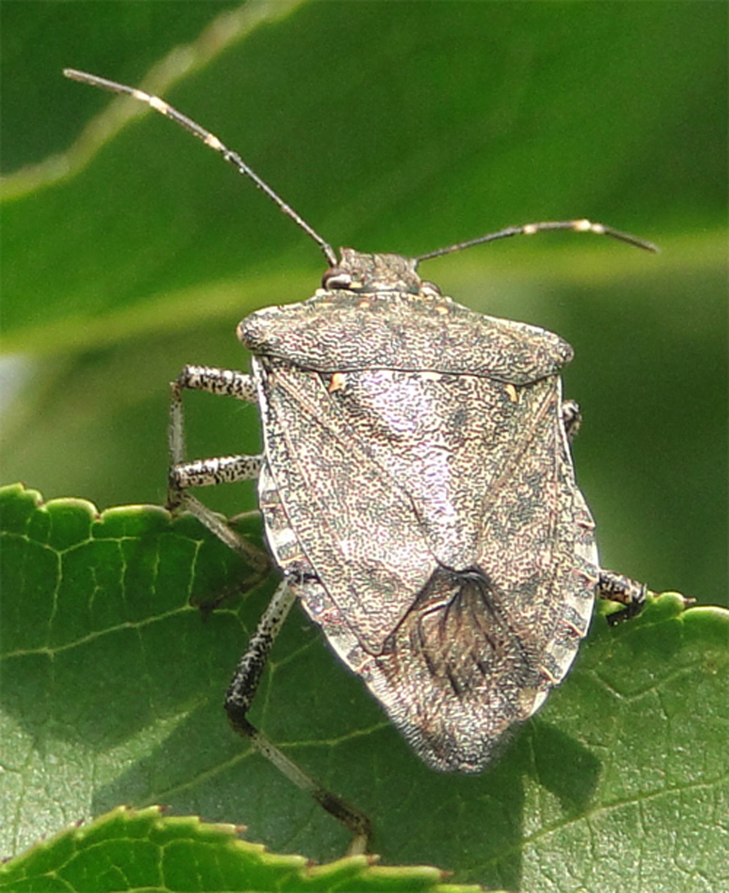Virginia's tree fruit industry has new insecticide to fight stink bugs

Virginia’s fruit industry has a new weapon in the fight against the brown marmorated stink bug, a thumbnail-sized pest that has made headlines over the past year for the trouble it caused growers and homeowners alike.
On June 29, the U.S. Environmental Protection Agency (EPA) granted an emergency exemption to use the insecticide dinotefuran to control the stink bug on stone and pome fruits in Virginia and six other states. Chris Bergh, tree fruit and grape specialist for Virginia Cooperative Extension and associate professor of entomology at Virginia Tech, prepared the application for the pesticide’s use as part of Extension’s larger effort to ward off the stink bug in Virginia.
“The exemption will allow stone and pome fruit growers in a seven-state region to use this pesticide,” Bergh said.
The Virginia Department of Agriculture and Consumer Services (VDACS) submitted the application to allow for unregistered use of the pesticide until Oct. 15, the end of harvest season. According to a VDACS announcement, Section 18 of the Federal Insecticide, Fungicide and Rodenticide Act authorizes the EPA to grant exemptions for pesticide use for a limited time in the event of an emergency.
Eric Day, Extension insect specialist and manager of Virginia Tech’s Insect Identification Lab, reports that the stink bug — which cycles through two generations in Virginia’s temperate climate — has been a major agricultural pest since last year.
“The brown marmorated stink bug has been a serious issue for commercial fruit and vegetable growers, including soybean farmers,” he said.
Researchers have had trouble estimating the stink bug’s economic impact because of its wide-ranging feeding habits, but anecdotal evidence paints a grim picture, especially for the tree fruit industry. “I have spoken with fruit growers in the Eastern Panhandle of West Virginia who cannot afford another year like 2010,” Day said.
He added that some Virginia growers have discarded entire batches of wine after discovering the stink bug on grapes during processing.
Virginia Cooperative Extension has worked to help both farmers and homeowners deal with the brown marmorated stink bug. Bergh and Tracey Leskey, a research entomologist with the U.S. Department of Agriculture (USDA), spoke at town hall meetings in April to educate growers about the problem. In June, a bill requiring the USDA to identify and develop methods to control the stink bugs passed the U.S. House of Representatives, thanks to a proposal developed in part by several Virginia Tech entomologists.
Extension has also provided growers with weekly reports about the stink bugs’ prevalence through the Virginia Ag Pest Advisory, an online newsletter. In addition, Extension agents have been helping growers identify the insect and understand best control strategies to date.




